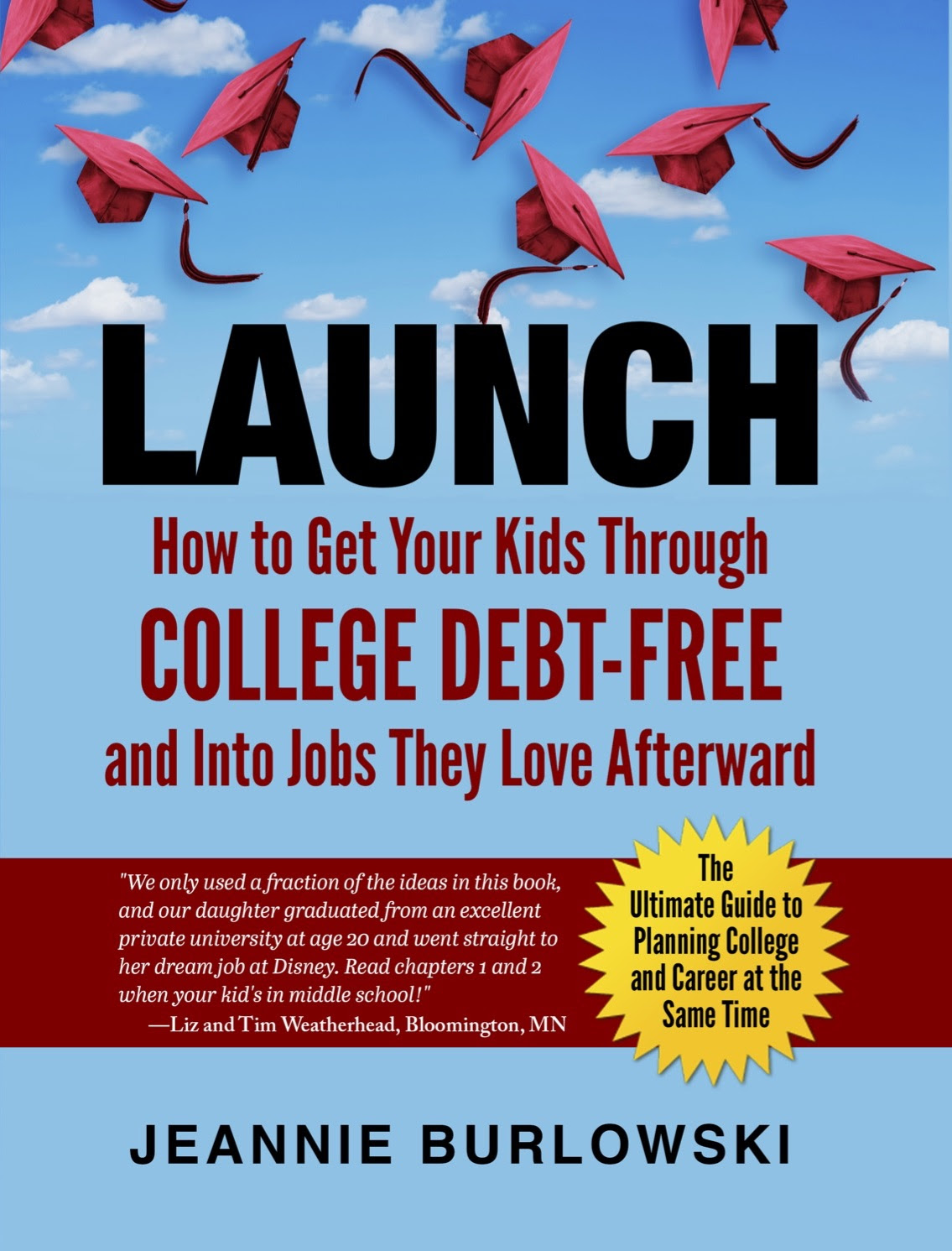Your 12th grader is in tears, desperate for you to give him the go-ahead to attend an elite university that’ll cost him $950 per month for 10 years after college. You want him to be happy. Do you say yes?
Before you respond, you’ll need to be clear on the answer to this one question: “Is it really true that elite private education is so enriching that it automatically leads to a happier, more fulfilled life after college?” What does the research say?
In this NPR article entitled Poll: Prestigious Colleges Won’t Make You Happier In Life Or Work, Anya Kamenetz cites a Gallup survey of 29,650 college graduates of all ages that demolishes the argument that top college grads lead more fulfilling lives later in life.
Here are the top 6 surprises found in the Gallup data Kamenetz cites:
1. The college you attend doesn’t actually affect your future happiness after college.
“When you ask college graduates whether they’re “engaged” with their work or “thriving” in all aspects of their lives,” Kamenetz writes, “their responses don’t vary one bit whether they went to a prestigious college or not.”
2. The college you attend doesn’t move the needle one bit on five separate measures of human happiness.
Gallup pollsters asked college grads an array of questions designed to measure how well they were doing in regard to financial health, sense of purpose, physical health, financial security, close relationships, and community pride. The astounding finding? “(The results) did not vary based on whether the grads went to a fancy name-brand school or a regional state college, one of the top 100 in the U.S. News & World Report rankings or one of the bottom 100.”
3. The college you attend is unlikely to impact how much money you make after college.
One of the most seductive arguments in favor of expensive, elite education is that “it helps kids get well-paying jobs as adults.” But is this actually true? Do graduates of elite colleges actually earn more money throughout their lifetimes? Kamenetz says no. “This isn’t the first time studies have documented no edge for highly selective schools,” she writes. “Previous studies have shown no link between expensive private colleges and later salary for graduates.”
4. College debt, though, has a dangerous, near-devastating impact on happiness after college.
According to Kamenetz, the Gallup results reported that “only 2 percent of those with $20,000 to $40,000 in undergraduate loans reported they were thriving. That’s pretty troubling, since $29,000 is the national average for the 6 in 10 students who borrow.”
6. Certain colleges came out slightly ahead.
The data shows that students tend to be slightly happier after attending college on a campus with more than 10,000 students (smaller campuses may have fewer resources available for students) while “for-profit college graduates saw worse outcomes.”
Students can go to expensive, elite colleges if they really want them—but doing so will require a little extra strategizing early on so that students can graduate from those schools debt-free.
For clear, step-by-step help getting your kids through college debt-free, get your copy of my book:
Important—> It’s a reference book, so nobody reads the whole thing cover to cover. Pick out what you need to read in it using the fast-paced, 10-minute video instructions here.
You can see hundreds of reviews of this book on Amazon by going to:
Read just one chapter of LAUNCH every 1–3 months while your child’s in middle school and high school, and you’ll know every viable strategy for debt-free college at exactly the right time to implement it.
And if your child’s already well past middle school? That’s OK; you can run to catch up. But the process of getting your kids through college debt-free goes more smoothly the earlier you start—especially if you’re not planning to save up any money to pay for college.
Let's you and I walk together toward the goal of debt-free college for your kids.
We can accomplish this no matter your current income level—even if your kids never get a single scholarship.
Your first step is getting regularly scheduled, free helpful articles from me—right in your email inbox. Quick, sign up here.
Do you have very specific questions for me about debt-free college and career for your kids?
My TRIBE Members get the most direct access to me—while feeling good that the pennies per day they spend on the TRIBE help me bring debt-free college strategy to families who could never afford to pay for it. Join my TRIBE Membership waiting list here. (The parent testimonials you'll see there are so encouraging!)
Who is Jeannie Burlowski?
Jeannie is a full-time academic strategist, podcast host, and sought-after speaker for students ages 12–26, their parents, and the professionals who serve them. Her writing, speaking, and podcasting help parents set their kids up to graduate college debt-free, ready to jump directly into careers they excel at and love. Her work has been featured in publications such as The Huffington Post, USA Today, Parents Magazine, and US News & World Report, as well as on CBS News.
Jeannie also helps students apply to law, medical, business, and grad school at her website GetIntoMedSchool.com. You can follow her on Bluesky @jburlowski.bsky.social.
No part of this article was written using AI.
This article was updated on August 7th, 2025.



